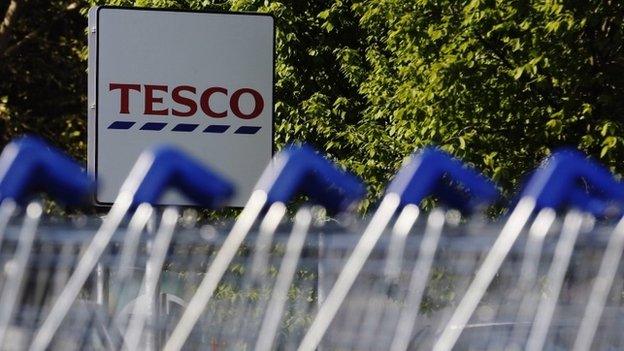Morrisons reports worst profit results in eight years
- Published
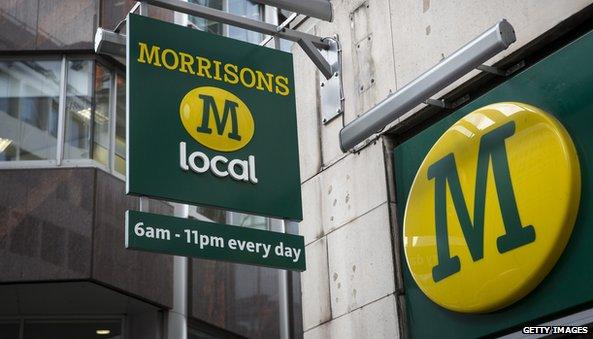
Morrisons signalled that it didn't expect conditions to improve significantly in 2015
Supermarket chain Morrisons has reported profits down by 52% to £345m, its worst results in eight years.
After taking account of a £1.3bn write down in the value of its supermarkets, that turns into a loss of £792m.
"This has been a controlled and a planned reset of the business - it is painful, but it is the start of a new growth period we hope," chairman Andrew Higginson told the BBC.
New chief executive David Potts will start in the business on 16 March.
Mr Potts was picked to replace Dalton Philips, who announced his departure in January after five years at the helm of the Bradford-based firm.
Meanwhile, Morrisons said the rollout of its M stores would be "slowed significantly", and that it would close 23 M local stores during the year, resulting in the loss of 380 jobs. It also said it would review its "site selection criteria" going forward.
Shares in the firm dipped in early morning trading before rising to 207.5p, 0.5% higher than the opening price.
Breathing room
"Last year's trading environment was tough, and we don't expect any change this year," said Mr Higginson in a statement, external.
In order to give Mr Potts more financial headroom to work with as he seeks to revitalise the business, Morrisons said it would slash its future dividend payment to 5p or less during 2015-16. That compares with a 13.7p payout per share in 2014-15.
The chain is battling falling sales. It said that same-store sales fell by 5.9% for the full year, and by 2.6% in the fourth-quarter.
To woo consumers, Morrisons said it would invest more in cutting prices this year, as well as slowing down its convenience store rollout.
Morrisons has been criticised for being slow in moving into the convenience store sector, as well as in setting up an online operation.
Andrew Higginson: "It is painful and it's been difficult for shareholders"
The company said it opened 57 stores and closed six during the past year, bringing the total number of M local stores to 153, before the 2015 announced closures.
"Candidly we got off to a slower start than we hoped" with convenience stores, Mr Higginson told the BBC.
Despite that slow start, he said that the firm would take time to re-evaluate its strategy, adding: "It doesn't make any sense at the moment to press on with something that isn't working as well as we hoped."

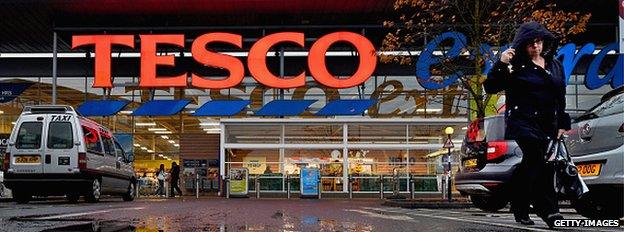
Analysis: Kamal Ahmed, BBC business editor
Fewer stores, fewer products in those stores and fewer promotions. For Morrisons the age of expansion was brought to a halt today as it retrenched, spoke wistfully of the bygone era of Sir Ken Morrison's northern based powerhouse and revealed that its venture into convenience stores had been underwhelming.
Its £1.3bn write-down in its property portfolio will send tremors through the supermarket sector. Many expect a similarly large write down by Tesco - the big daddy of the supermarkets - when it announces its quarterly results on 22 April.
This is the major tectonic change in the sector. Large, out of town supermarkets are just not the cash cows they once were and have therefore taken a hit on their value. Goldman Sachs estimates that the three major listed supermarkets - Tesco, Morrisons, and J Sainsbury - will need to close one in five stores to protect their profits.
Expect a lot more red ink as the Big Four supermarkets try to catch up with consumers, now more interested in smaller, local stores and the discounters Aldi and Lidl.

Supermarket focus
Mr Higginson emphasised that Morrisons remained focused on its core business of supermarkets - a good thing, according to some analysts, who said that could allow the firm to differentiate its brand.
Furthermore, the firm has been somewhat successful in its price reduction strategy.
"The positive so far is that Morrisons has repositioned itself on price," said Cantor Fitzgerald analyst Mike Dennis.
"This...can be used to further reduce debt and provide capital to invest in new value formats and reposition the convenience store business."
It is the UK's fourth-largest supermarket chain, trailing Tesco, Asda and Sainsbury's in annual sales.
- Published5 October 2014
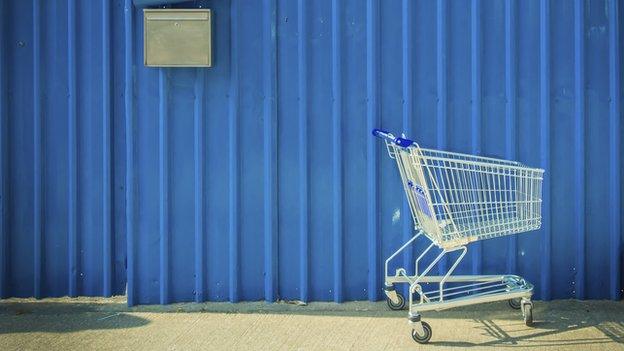
- Published12 March 2015
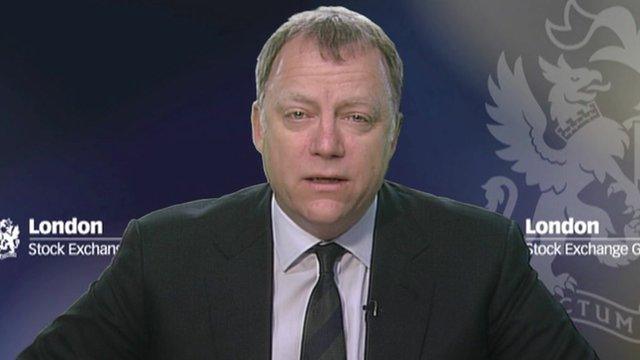
- Published25 February 2015
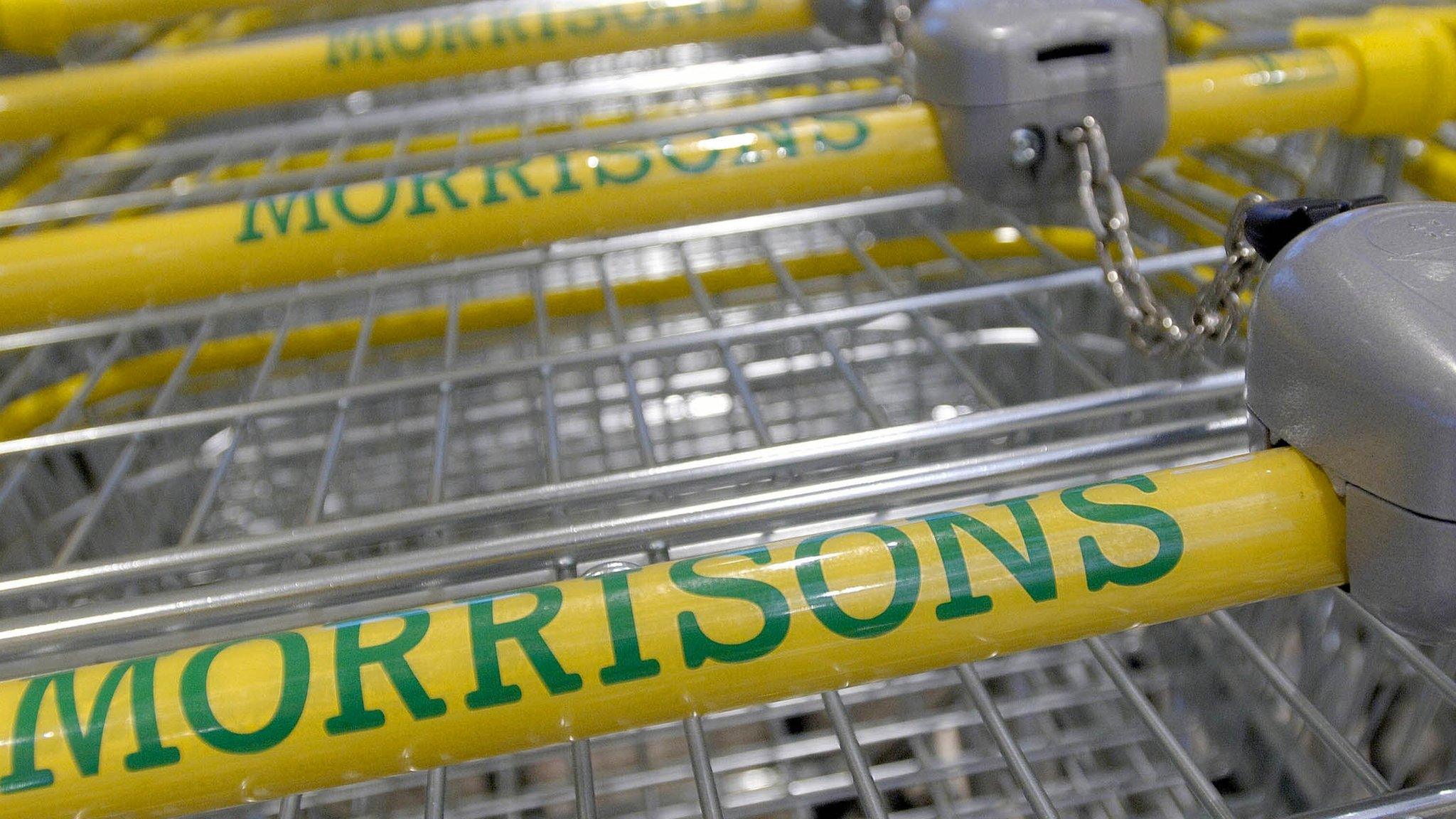
- Published14 January 2015
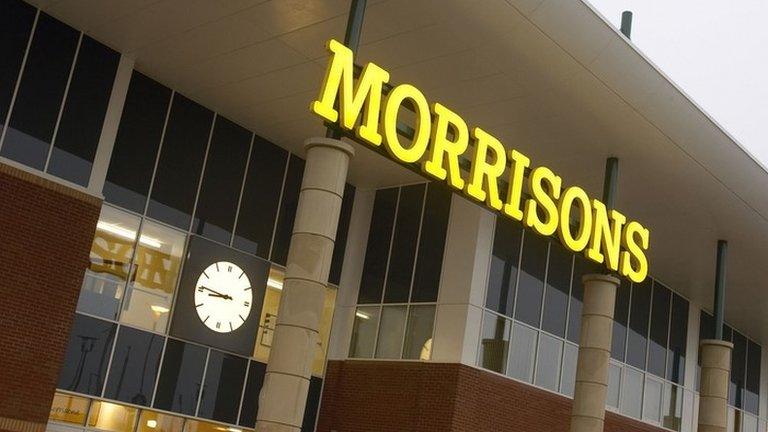
- Published7 January 2015
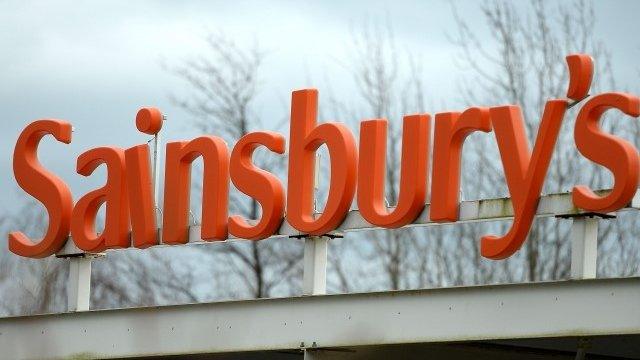
- Published28 January 2015
